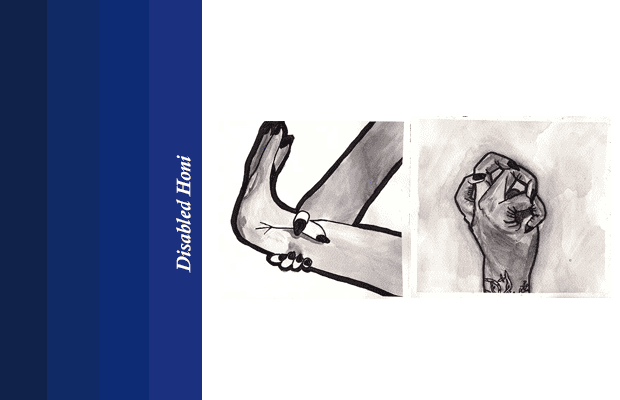A few weeks ago I came across an article on Facebook, people were outraged over a woman with cerebral palsy being refused entry to The Marlborough Hotel (known as The Marly). I felt conflicted when reading it, yes we should be outraged, but what saddens me is that so many people seem to think that this situation is unusual. As a disabled person, with a large group of friends who also have disabilities, most of my nights out result in travelling to multiple bars to gain entry for my friends with mobility aids. We engage in arguments with bouncers who claim that our disability is a sign of intoxication and we show our anger over friends being kicked out due to their disability. A night of fun for a group of disabled people can so easily turn into a night of intense frustration as we are discriminated against repeatedly.
When I went clubbing with my friends a few weeks ago, the last thing I expected was to be refused entry, due to my invisible disability. While invisibility may seem like the stuff of dreams and super hero movies, it’s definitely not magical when it strips you of the same rights as other everyday Australians.
On a cold night in Sydney’s inner west, my friends and I decided to attend a well-known LGBTI+ bar. I approached the bouncers, holding my driver’s license, eager to enter the colourful and diverse world inside. As I told the bouncer how excited I was to celebrate this night with some of my closest friends, my heart sank as he told me he would not be allowing me into the club as I was too drunk. I was confused, I had only had two drinks by this point and was by no means drunk, I could guarantee there were others in that building who had consumed a great deal more than I had. When I questioned him on his refusal to allow me entry, he claimed that my speech was what had “alerted” him to my “intoxication”. As someone with a speech impairment, I was angry and upset, I couldn’t believe this had happened to me. Unfortunately though, this was only the first of many times that either myself or my friends have been refused entry to venues due to our disability.
It’s a phenomenon that’s always brought me comfort, the fact that people of certain minority groups tend to find each other. There’s a sort of unspoken connection between us, and before you know it, all your friends understand your sense of isolation, you find your family amongst those who feel your pain. Unfortunately though, that sense of community presents a problem within itself. As we band together and look forward to nights of clubbing fun, we present ourselves as a group of disabled people, and this means countless nights of frustration as we are turned away again and again.
My friends and I have been excluded from venues on multiple occasions, often in an obvious display of ableism. However, other times well-meaning people just haven’t thought about disabled people when they planned their event.
Many venues aren’t accessible to people with mobility aids and there is no option of entry for wheelchair users. I was presented with this problem on the night of the cross-campus Queer Party when I was excited to go clubbing with a group of my queer friends, one of them is a wheelchair user. When I emailed the organisers of the event to ask if the venue had a lift, to allow my friend entry, I was absolutely shocked at the response I received. “There isn’t a lift, but we can have security guards carry your friend up the stairs and then carry their chair” they said. I don’t think I‘ve ever face-palmed so hard in my life! Obviously this dehumanising ‘solution’ was not an option, I was not going to make my friend go through that. When will we have better options for wheelchair users to attend events like the rest of us?
Being disabled and queer in a society that is not made for us, presents difficulty in many situations, partying is the last place I expect to have to face discrimination and exclusion. As we band together and look forward to nights of clubbing fun, we present ourselves as a group of disabled people. We are expected to hide away, to not present ourselves, because we are seen as an eyesore within society, a group of people that definitely shouldn’t draw attention to ourselves. Society doesn’t want to deal with us, in the eyes of the majority, one disabled person is one too many, in a group we are the problem that no one wants to deal with. As a result we are kicked out, refused entry, because accessibility is an inconvenience to the majority.
This article appeared in the autonomous Disabilities edition, Disabled Honi 2018.





